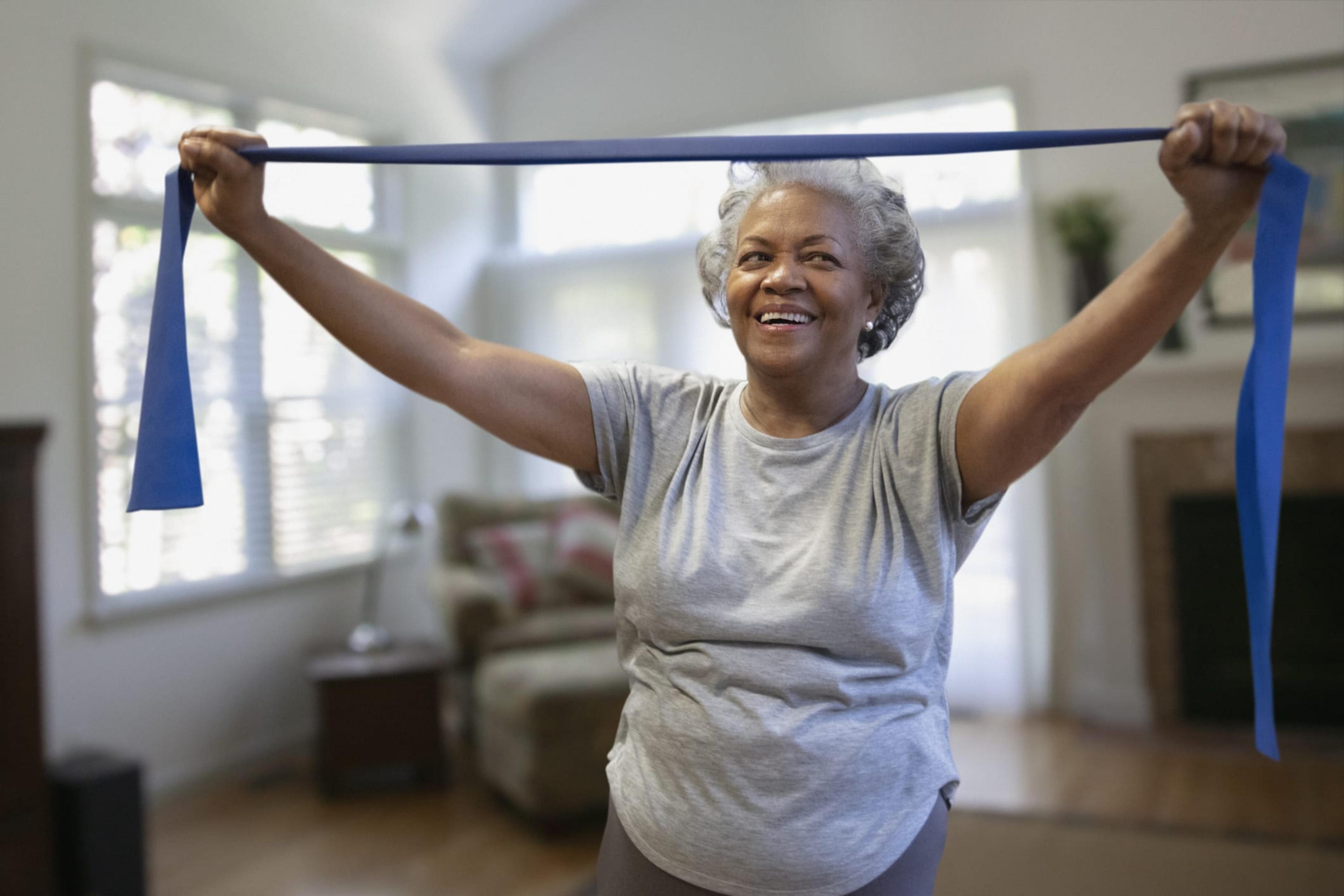Blue Cross Workers Made Mental Health a Priority During the Pandemic
Amy Barczy
| 4 min read
Amy Barczy is a former brand journalist who authored content at Blue Cross Blue Shield of Michigan. Prior to her time at Blue Cross from 2019-2024, she was a statewide news reporter for MLive.com. She has a decade of storytelling experience in local news media markets including Lansing, Grand Rapids, Holland, Ann Arbor and Port Huron.

The COVID-19 pandemic affected everyone in different ways – but the undercurrent of all the changes we’ve shouldered in the past year is stress. Stress can exacerbate existing anxiety and depression or make it more difficult to handle new changes in life. Above all, the pandemic emphasized the need to put our health first. Disruptions in our routines and access to social supports made taking care of our mental health more difficult – yet more important – than ever. Here’s how some Blue Cross Blue Shield of Michigan employees recognized the effect the pandemic was having on their mental health and how they made taking care of themselves a priority.
Calling for help
Mary Abraham and her daughter. For first-time mom and manager of strategy for digital experience Mary Abraham and her husband, the early days of the pandemic were challenging as they navigated the new information about the virus. In the best interests of themselves and their new baby, they locked down from social circle “instantly,” Abraham said. “We were too nervous to bring in someone from the outside, and we didn’t know much about COVID,” Abraham said. “Every day felt like Groundhog Day.” Abraham and her husband were both working full time and juggling parental responsibilities. As the days went by, Abraham started to feel more and more overwhelmed as she consistently put the needs of her family and her job before her own. One night, Abraham felt like she had reached the end of her rope. She asked her husband to take over with the baby, went out to her car and dialed a help line. “That 30-minute phone call really changed the way that I thought about prioritizing my mental health,” Abraham said. “It taught me the importance of being able to check in with someone and check in with myself on a regular basis to make sure my mental health is as doing well as my physical health.”
Finding new routines to stick to
David Murray cooks in his kitchen. David Murray, social media strategy manager for Blue Cross, knew the signs of his depression when they hit during the pandemic. “Not having a ‘normal’ day-to-day routine triggered my depression,” Murray said. “So, I had to find new routines I could stick to.” For Murray, he found a creative outlet in the kitchen. It became a new routine that helped define his day. Between 5 p.m. and 6 p.m. every day, he stops what he’s working on and starts dinner – even if he’s not cooking it directly himself. Cooking Sunday brunch is also a new staple. “Cooking stimulates my creative side and I enjoy going through the process of prepping and preparing ingredients to documenting and sharing what I’ve made,” Murray said. He’s also found a way to ground himself by going on regular runs, and dedicating time to be away from his laptop.
Taking control
Al Bettis Al-Qaadir Bettis, systems analyst associate with Blue Cross, said he found himself constantly anxious and had trouble sleeping early in the pandemic. “As a person who is constantly thinking of the future and what it will bring, the pandemic started out rough. I was scared for myself and my family,” Bettis said. “I had to make sure we had enough food and water. I questioned if I could protect my family in the event of a catastrophe. I found myself very anxious about going out in public.” Navigating work responsibilities and life with his daughter in a tight bubble at home presented a challenge, Bettis said. “When my daughter is in need of assistance it may require me to take a break from my tasks to focus my energy on her schoolwork,” Bettis said. But the pandemic has brought new opportunities: it’s been easier to make healthy food choices at home for Bettis – and he’s found focusing on his nutrition and using his lunch hour to exercise has improved his outlook and gave him a sense of calm and control. He’s also started talking with a therapist, both with his fiancée as a couple and as an individual. “Tackling my total health during the pandemic was one of the best things I could have ever done,” Bettis said. For more information on Blue Cross behavioral and mental health options, visit bcbsm.com/mentalhealth. Photo credit: SelectStock





